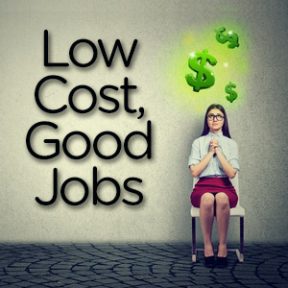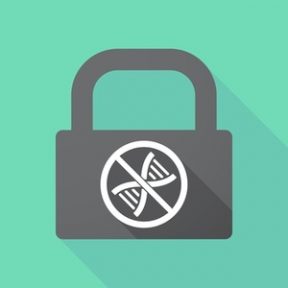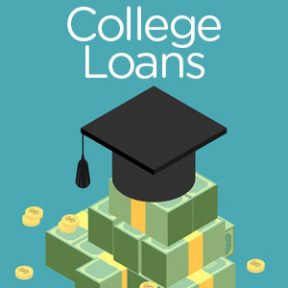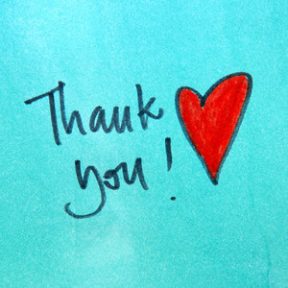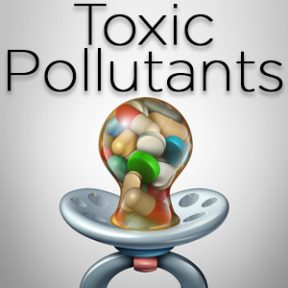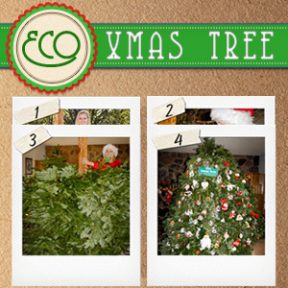 Did you know that bachelor’s degrees in performing arts, cinematography, and anthropology have a median salary of under $25,000? Umm. That’s a 4-year degree! Now consider other careers that pay well over $75,000 that only require an apprenticeship or Associate’s Degree:
Did you know that bachelor’s degrees in performing arts, cinematography, and anthropology have a median salary of under $25,000? Umm. That’s a 4-year degree! Now consider other careers that pay well over $75,000 that only require an apprenticeship or Associate’s Degree:
Physician Assistant: $112,200 (associate of science)
Elevator constructor/mechanic: $106,900 (Apprenticeship)
Elect and comm engineering tech: $91,700 (Associate in Science)
Millwright (install/repair machines): $82,500 (Apprenticeship)
Heavy-equipment operator: $81,000 (Apprenticeship)
Fire prevention/safety technician: $76,400 (Associate in Applied Science)
That said, the highest paying jobs are in engineering, health sciences, and business. But, be careful when choosing your major/career. Many majors focus on specific skills, knowledge, and training, which means that when that niche market changes – or disappears due to technological advances – so, too, may your job! With the ever-changing technological fields, make sure you’re keeping up. Do your homework to ensure that you are on top of your game!
[Source]
 Did you know that bachelor’s degrees in performing arts, cinematography, and anthropology have a median salary of under $25,000? Umm. That’s a 4-year degree! Now consider other careers that pay well over $75,000 that only require an apprenticeship or Associate’s Degree:
Did you know that bachelor’s degrees in performing arts, cinematography, and anthropology have a median salary of under $25,000? Umm. That’s a 4-year degree! Now consider other careers that pay well over $75,000 that only require an apprenticeship or Associate’s Degree:
Physician Assistant: $112,200 (associate of science)
Elevator constructor/mechanic: $106,900 (Apprenticeship)
Elect and comm engineering tech: $91,700 (Associate in Science)
Millwright (install/repair machines): $82,500 (Apprenticeship)
Heavy-equipment operator: $81,000 (Apprenticeship)
Fire prevention/safety technician: $76,400 (Associate in Applied Science)
That said, the highest paying jobs are in engineering, health sciences, and business. But, be careful when choosing your major/career. Many majors focus on specific skills, knowledge, and training, which means that when that niche market changes – or disappears due to technological advances – so, too, may your job! With the ever-changing technological fields, make sure you’re keeping up. Do your homework to ensure that you are on top of your game!
[Source]
 You’ve probably heard a lot of hype about people getting DNA tests to determine their ancestry, ethnicities, and potential hereditary health issues. I get a kick out seeing white supremacists who learn that they are not entirely white – and muse at the thought that this may be one of the best ways to stop discrimination and hate crimes. But, I have to admit, I’m curious to know if I have any health concerns so I can proactively change my lifestyle to ward them off.
You’ve probably heard a lot of hype about people getting DNA tests to determine their ancestry, ethnicities, and potential hereditary health issues. I get a kick out seeing white supremacists who learn that they are not entirely white – and muse at the thought that this may be one of the best ways to stop discrimination and hate crimes. But, I have to admit, I’m curious to know if I have any health concerns so I can proactively change my lifestyle to ward them off.
Leave it to the oligarchy that runs this nation to take our genetic information and use it against us! ARGH! DNA kit companies make it easy to have tests sent to your home and ask you to sign what seems like a harmless form. But, for most of us, we don’t read the microscopic fine print that allows them to sell our very personal information to others.
Some of the worst culprits are life insurance companies. They can use this information to deny you coverage based on your DNA results. Employers can also use this information to make employment decisions based on your health.
In the future, the FBI worries that DNA will be used to target individuals or specific ethnicities using biological weapons. China is buying up U.S. genomics firms to get access to genetic databases. According to James Clapper, the former director of national intelligence, genetically engineered bioweapons are one of the nation’s top security threats.
In light of this news, I’m holding off on doing any DNA testing. Privacy today seems to be invaded on so many fronts. When you can’t trust your government to protect you, you need to be wary yourself.
[Source]
 Did you know that in 2016, the average student owed more than $35,000 in student loans? GASP.
Did you know that in 2016, the average student owed more than $35,000 in student loans? GASP.
Starting next year (2018-2019), Brown will eliminate all student loans and instead issue scholarship, which don’t have to be paid back. Now this is what elite, higher education should be. Only the best get in regardless of their ability to pay.
Countries from Sri Lanka to Germany to Norway offer free college tuition. Maybe, it’s beginning to catch on here in the United States…
[Source]
 I made a castle out of pretzels and that became the centerpiece at our After-Christmas Party for toddlers.
I made a castle out of pretzels and that became the centerpiece at our After-Christmas Party for toddlers.
Yup, invited Merit alums, friends of my girls, and family friend’s grandkids to make their own edible houses out of cookies, candies, and pretzels.
Great way to end the holiday season!

 I don’t get many handwritten letters these days – with texts and emails offering quick messages with little effort. But last month, my daughter Nicole wrote a letter to Rob and me after she attended her 10-year reunion at Stanford that made me cry.
I don’t get many handwritten letters these days – with texts and emails offering quick messages with little effort. But last month, my daughter Nicole wrote a letter to Rob and me after she attended her 10-year reunion at Stanford that made me cry.
Mom and Dad –
At my 10-year reunion, we all reminisced about our incredible shared experience at that incredible place. It also gave me the chance to reflect on the continued constant assistance that you’ve provided over the years, even after I left home. Knowing the tuition costs involved, I want to thank you. Thank you for the emotional and financial support.
It has afforded me great freedom from the worry and oppressive debt facing many others in my generation. I am just beginning to understand and appreciate what you did for me.
So, thank you again.
I love you both so much.
Humbly,
Nicole
To all parents of college students, they really do appreciate your sacrifice and dedication to giving them a college education – even if they don’t say or write it!
 Did you know that toxic pollutants can harm future, unexposed generations?
Did you know that toxic pollutants can harm future, unexposed generations?
I’ve often wondered when our children will blame us for the environmental degradation that we have laid on them. Maybe that explains the X, Y, and millennial generations’ short-term view on their future. SIGH. But now there are studies by the Environmental Working Group that shows how some toxic chemicals are passed from pregnant women to fetuses, and also to grandchildren and possibly great-grandchildren. Yup – we’ve really screwed up and now it’s going to affect future generations, too.
How does this happen? While a woman is pregnant, toxic chemicals are passed on to her fetus and to the fetus’s reproductive cells. This process is called a “Transgenerational Effect.” Click here to learn more about epigenetics.
Isn’t it time for us to stop producing toxic chemicals that wreak havoc on our bodies, the foods we eat, and now our future generations?
[Source]
 Christmas is tomorrow! Although I don’t practice Christianity, I do enjoy partaking in the Christmas festivities.
Christmas is tomorrow! Although I don’t practice Christianity, I do enjoy partaking in the Christmas festivities.
Twenty-five years ago I built my first Eco-Xmas tree!
Read about how to build an Eco Xmas tree here [Step 1, Step 2, Step 3, Step 4], and check out the book I wrote laying out all of the steps to building one!

 I love living in Santa Cruz because of the coastal redwoods, beaches, elephant seals, yacht harbor, and the Monarch Butterflies.
I love living in Santa Cruz because of the coastal redwoods, beaches, elephant seals, yacht harbor, and the Monarch Butterflies.
Last weekend, we visited Natural Bridges State Park to see the clusters of thousands of Monarchs hanging from the Eucalyptus trees – just a quick walk from the beach. How cool is it to live in one of the few places that the Monarchs migrate to each year?
If you get a chance to visit before February, it’s a natural phenomenon worth seeing! And you’ll support California state parks in the process!

 Did you know that iGen kids – those born between 1995-2012 — are suffering from depression in record numbers? Yup. Not surprisingly, the blame goes to smartphones.
Did you know that iGen kids – those born between 1995-2012 — are suffering from depression in record numbers? Yup. Not surprisingly, the blame goes to smartphones.
According to Jean Twenge, a psychology professor at San Diego State University, teens don’t have enough face-to-face interaction with friends because they’re consumed by social media on their smartphones. This means that they don’t have the social benefits of reading one another’s emotions and giving personal support that teens really need.
What surprises me is that teens today are physically safer than previous generations. They drink less, start driving later, and hold off on having sex. I guess that makes sense when you’re interacting with a smartphone and not with other teens.
While being physically safe may make parents feel like they have better control over their teens, parents need to monitor and limit their teens’ smartphone and internet usage to encourage kids to just be kids. When’s the last time teens went out to play together?
My advice: set blocks of time where smartphones are turned OFF each day to force teens to break their addiction to the internet and to engage with people. They’ll never do this on their own and it’s up to parents to give them this much-needed break in cyberspace.
[Source]
 In October, the Santa Rosa Fire in Northern California hit home for me. I don’t live in Santa Rosa, but the reality that climate change is really happening NOW shook me. I was nervous to leave my home for fear that the Santa Cruz Mountains fire would blow down our way and I might not be able to retrieve anything or save my dogs and chickens. That’s when I got serious and created an Evacuation Plan.
In October, the Santa Rosa Fire in Northern California hit home for me. I don’t live in Santa Rosa, but the reality that climate change is really happening NOW shook me. I was nervous to leave my home for fear that the Santa Cruz Mountains fire would blow down our way and I might not be able to retrieve anything or save my dogs and chickens. That’s when I got serious and created an Evacuation Plan.
I met with my IT guy and we started backing up all of my business and personal files in the cloud. The software scans my computers and uploads new (or newly updated) files to the cloud. I have already scanned my 200+ photo albums (1 TB) and digitized my 450+ videos (3.5 TB), and we organized a systematic back-up these files to physical hard drives that are stored off-site with my two daughters in different parts of the country. Phew! That gives me peace of mind.
We also have Replacement-Cost insurance, so theoretically, our physical possessions would be replaced if our home is destroyed. I took photos of every item in our house, including all books, albums, tools, clothes, and furniture. EVERYTHING! And those photos are saved on our photo drives offsite.
Knowing that I have all of my photos, videos, and a photo record of all physical possessions in our house, made it easy for me to create a Go-Bag. Nicole, my daughter who is doing an EMS fellowship at UCSF, told me to create 2 Go-Bags: (1) Things we’ll need to survive for a week; and (2) Things that we use daily and can’t pack away ahead of time.
I made my Go-Bag (1) and filled it with clothes, contact lenses, hydrogen battery charger, water, and food. I also packed sleeping bags, blankets, and pillows, and placed all of this in my trunk so it’s always with me and ready to go.
Then I made my Go-Bag (2) and stapled a list of things (with photos) that I would like to take in the case of an evacuation. I placed these bags near all of the exits in my house so anyone in the house would know what to take in an emergency. I listed my computer servers, files I use daily, medications, and jewelry.
As our climate heats up and our droughts become more severe, wildfires are going to become the norm. Set up your Go-Bags for your car and house, so you won’t have to make difficult decisions about what to take if you have to evacuate.
Pack your Go-Bag!
[Source]

